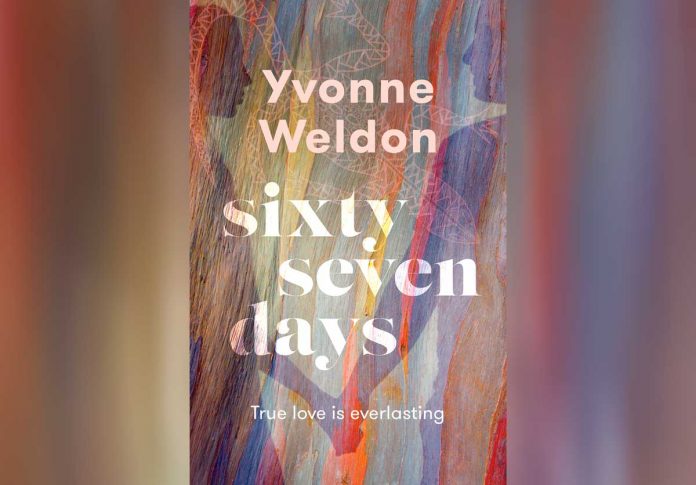Sixty-Seven Days
Yvonne Weldon
Penguin, $32.99
Yvonne Weldon’s Sixty-Seven Days tells the story of a romance, but it is about a lot more than the “boy meets girl” plot that forms its centre. Weldon’s book also raises a range of other topics, among them extended family, Indigenous people’s connection to land and place, sexual abuse and its consequences, domestic violence, racism, identity and grief.
If that makes this book sound heavy and polemical, it isn’t. Weldon writes with a light enough hand that the reader doesn’t feel she is preaching to us or using her characters simply as mouthpieces for political views.
Narrated by Evie, age 19 when the book begins, an Indigenous woman living in the inner west and studying at Sydney Uni, Sixty-Seven Days tells of the romance between Evie and James. The plot device of organising the book into short chapters representing days since the two meet works well and maintains an aura of suspense.
The first entry, Day 67, has Evie in a chapel saying her wedding vows – alone. We then skip to Day 1, when Evie meets James, and follow the course of their relationship.
A chance encounter on a Redfern street brings the two together, and they fall quickly, deeply and devotedly in love. (Much of Sixty-Seven Days is set in the inner city, so locals will recognise many of the places the characters frequent.)
James, an apprentice electrician, and Evie bond almost immediately; her family welcomes him, including her extended family in NSW’s Central West. The sense of community and extended family is strong, and Evie delights in taking James to meet her aunts, uncles, cousins and grandparents.
Yet early on, Evie hints that there is trauma beneath the surface, and there are repeated references to the predator. We learn that it was he who abused 15-year-old Evie, who eventually fills in the backstory. The predator is no stranger; he is the partner of Evie’s Aunt Trudy and the father of her three children; he plays a prominent role in a local Aboriginal organisation. Despite having a loving, understanding family, Evie has avoided telling her parents about the abuse. Its memory plagues her, casting a shadow on even her happiest moments.
Evie, as narrator, is strongly drawn, as is her immediate family. Although he is present in much of the action, we never really see what makes James tick; I found him a less convincingly drawn character than Evie. He is patient, supportive, understanding and protective, but I would have found him more believable had he had more depth, and perhaps even a fault or two.
There is both heartache and, ultimately, a sense liberation for Evie by the end of the book. A dramatic plot twist (no spoilers here!) changes the course of her life irrevocably and upends the reader’s expectations. Sixty-Seven Days is a tale that is both heartbreaking and uplifting, skilfully told.
_______________





